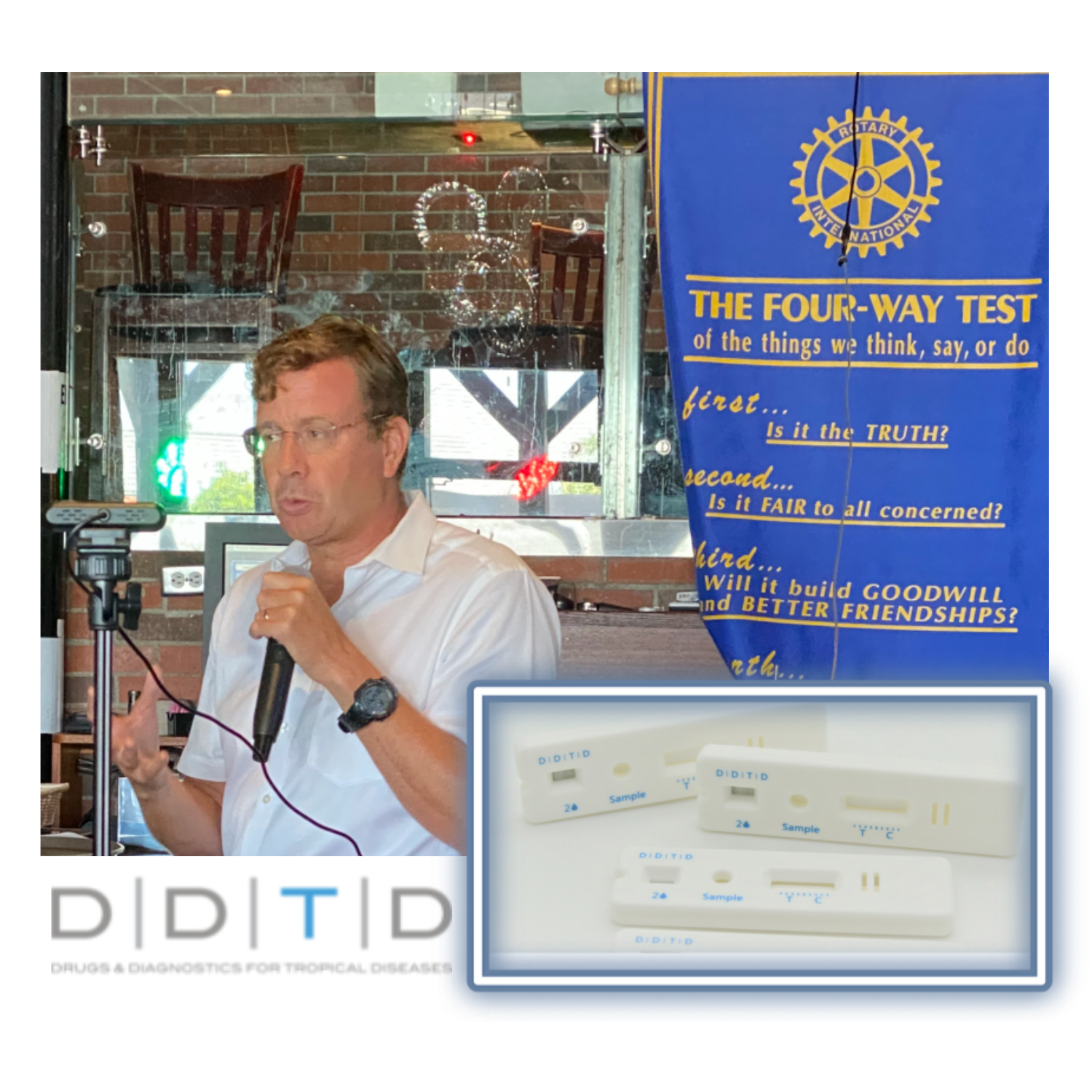
After advancing several drugs to treat cancer, Dr. Marco Biamonte, our speaker for the July 24, 2022 meeting, founded Drugs & Diagnostics for Tropical Diseases (DDTD), a non-profit organization that develops news treatments and diagnostics for diseases that largely affect underserved populations. The goal of DDTD is to eliminate diseases that should belong to the past.
Key to achieving this goal is mapping the incidence of these diseases and access to sensitive and specific diagnostics. The World Health Organization (WHO) put forth for the next decade a Road Map for Neglected Tropical Diseases that highlights the gaps in understanding where diseases are occurring and the availability of diagnostics due in part to limited investment.
DDTD is a small company located in the Sorrento Valley area. Despite its small size, DDTD secured funding from the US Agency for International Development (USAID) to develop diagnostics for River Blindness, a disease caused by fly-borne worms that can migrate to eye tissues and cause blindness. Over 100 million people are at risk for River Blindness, which can be controlled through mass deployment of the deworming drug ivermectin. Treatment with ivermectin is usually safe, but individuals who have been exposed to another parasitic worm, Loa loa, can have a fatal reaction to ivermectin and require different treatment strategies. The first product DDTD developed was a test to monitor exposure to L. loa so appropriate treatments can be selected. This test also helped map in detail areas where L. loa exposure is frequent, which also guides treatment strategies for parasitic infections.
Another area of focus for DDTD is Buruli ulcer. These ulcers emerge after infection with a bacteria that produce a toxin that destroys soft tissues. These infections can be successfully treated if they are caught early. DDTD is part of an international consortium that is developing a sensitive test to detect bacterial molecules in swabs of the wound.
DDTD is the recipient of grants from USAID, CDC, NIH and other agencies. Donations are also critical to their research efforts. Follow them on Facebook.